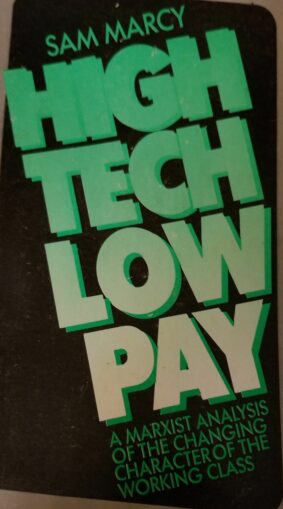When will they come for your job?

First they came for the Communists
And I did not speak out
Because I was not a Communist
Then they came for the Socialists
And I did not speak out
Because I was not a Socialist
Then they came for the trade unionists
And I did not speak out
Because I was not a trade unionist
Then they came for the Jews
And I did not speak out
Because I was not a Jew
Then they came for me
And there was no one left
To speak out for me
The poem above was written by Martin Niemöller, a German pastor turned activist. It is a particularly important poem because it highlighted his own personal socio-political development. When Hitler and the Nazi Party first came to power, Niemöller was initially supportive of them, including their anti-Semitism. His support for the Nazis changed when they started enacting strict control of the German Protestant church.
When he spoke out against it, Niemöller was arrested and put in a concentration camp. His experiences as a victim of Hitler’s oppressive regime completely changed his outlook and he became an ardent anti-war activist who later spoke out against the U.S. role in the Cold War. He was a vocal opponent of oppression in many forms.
You’re probably wondering why I started this article with a poem by Martin Niemöller. Well, given the recent development of artificial intelligence (AI) and automation technology, broader portions of the working class becoming radicalized like Niemöller is a real possibility. Machines are a part of our everyday lives as humans.
In one sense, machines have existed ever since we learned how to farm in Neolithic times. In Volume 1 of his book “Capital,” Karl Marx described machines as objects with a “motive power that is something different from man,” such as plows driven by oxen.
Retail jobs disappeared
In the latter part of the twentieth century, automated machines began to replace many low-wage workers. A CNBC study showed that retail jobs in the U.S. declined by over 140,000 during a two-year period between 2017 and 2019. And the sad part is that customer preference is fueling the switch to self-checkout technology at supermarkets and other retail outlets. The lines for self-checkout lanes are far longer than those for human cashiers, proving that many people are putting their own convenience over the job security of millions of workers.
The disregard for automation’s impact on low-wage employees has crossed over to food service as well. In late 2022, McDonalds opened its first automated location in Texas. Nearly every aspect of customer service, from order-taking to delivery, is performed by robots. Rather than be concerned about the impact this could have, especially on workers of color who are frequently employed in the food service industry, politicians and everyday people alike didn’t seem to care. They even made light of food service workers’ fight for $15 an hour, blaming the imminent automation of food service jobs on the workers’ fight for a living wage.
Many workers in white-collar, professional positions saw automation as a problem that wouldn’t affect them at all, some viewing the people it impacted with disdain. The labor aristocracy would sneer at low-wage workers and lecture them about pulling up one’s bootstraps, saying that those jobs were only meant for teenagers and other part-time workers. The overall feeling is that the end goal for every worker is high-wage, “skilled” labor positions that offer stability and can’t be performed by a robot.
As it turns out, these beliefs are starting to be called into question with the development and further sophistication of AI. Skilled positions that were once considered stable are now threatened by AI – from accounting, where automation is expected to take over 40 percent of accounting tasks (accountingtoday.com), even to medicine, with automated “doctors” doing many tasks that physicians now do daily, from diagnosing illnesses to prescribing medicine.
Imagine spending four years enduring all-nighters, grueling rotations, difficult exams, and skyrocketing tuition, only so some administrator could decide that you are expendable and can be replaced by robots.
That’s why workers’ solidarity is more important than ever in these precarious times. And there has been an upsurge of class consciousness in recent years. From the victories of Amazon workers organizing in Staten Island, to the ongoing struggle of Starbucks baristas, workers have been fighting back against exploitation by the ruling class.
Automation threatens to be another weapon in the arsenal of capitalists and is now impacting more than the most disenfranchised workers. Now is the time for white-collar workers and other members of the labor aristocracy to join hands with other sections of the working class and fight back. After all, when automation finally comes for skilled workers, who will speak for them?

